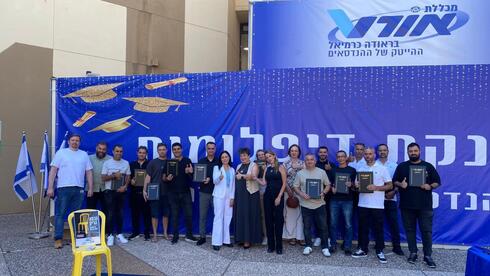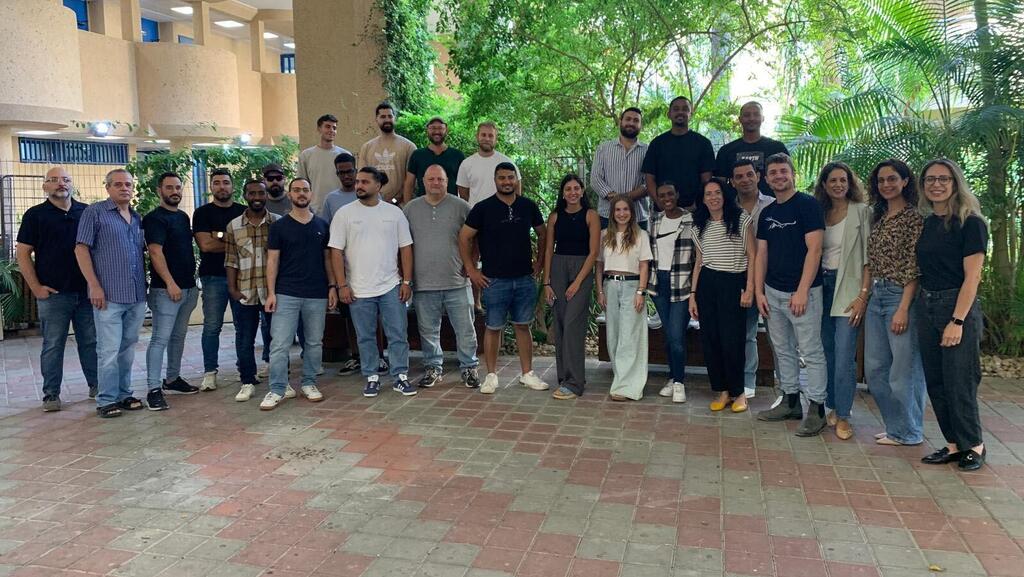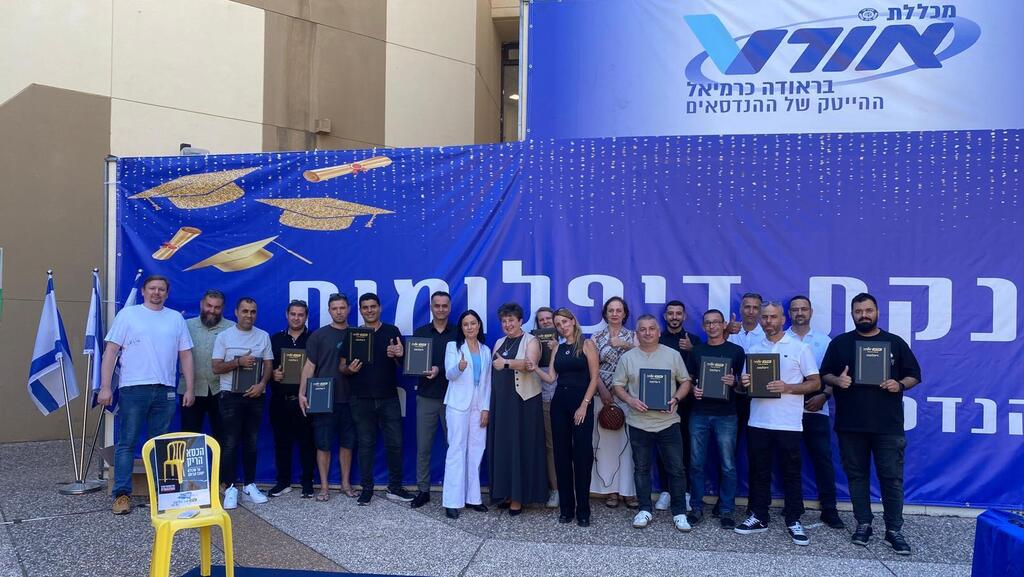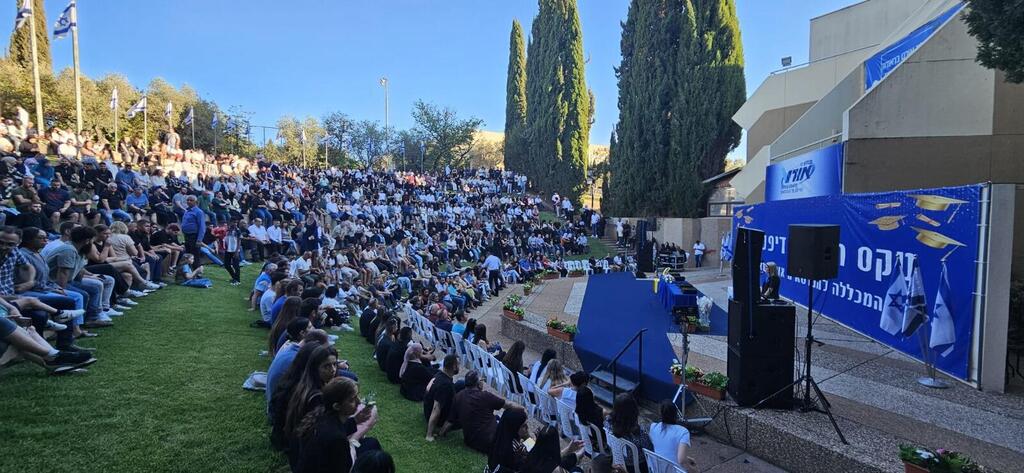In an era of advanced technological threats, electronics technicians aren’t just another link in the chain — they are a critical part of Israel’s defense infrastructure. From the moment a missile is launched toward Israel to the moment it is intercepted midair, hundreds of sophisticated electronic systems come into play: radar detects the threat, computing systems calculate its trajectory and sensors guide the interceptor to its target. Each of these systems depends on highly trained technicians to keep them running with life-or-death precision.
But right now, there’s a critical shortage of skilled professionals able to meet the defense industry’s growing needs. “Since October 7, there’s been a major surge in demand across Israel’s defense sector — both for protective systems and offensive capabilities,” says Daniel Poslanitz, director of Israel Sci-Tech Rehovot College.
To meet this demand, the Israel Sci-Tech Schools network launched two new, targeted training programs specifically for disabled IDF veterans, female combat soldiers and reservists. “A combat soldier has firsthand experience using our systems — in the air, at sea and on land. They understand the environment and operational needs of the IDF,” says Galit Abergil, head of human resources at Elbit Systems’ Intelligence Division. “That gives them immediate added value.”
These programs join Israel Sci-Tech Schools’ longstanding pre-army cadet track, which allows high school graduates to earn a practical engineer diploma before their military service, gain hands-on experience and serve in key technical roles in the IDF.
Idan is a participant in the first program — a class for disabled veterans developed in partnership with Israel Aerospace Industries and the Atidim Foundation. For him, the keyword is “routine.” Moving to Rehovot and taking on intensive studies “was just what I needed — it helped me tremendously in getting back to normal life.”
“As a disabled veteran in this tech track, I face challenges that most people don’t see — noise sensitivity from every plane flying overhead, the exhausting juggle of intensive coursework with psychological and physical treatments, ongoing legal proceedings, and for some of us, family responsibilities,” he shares. “It’s like living a regular life with an extra layer of rehabilitation.”
The program spans 17 months and includes four days of classes each week — a demanding pace, but one that fosters meaningful bonds. “Our class is made up entirely of men, most of whom returned to school after years away, which makes for a unique dynamic and its own challenges,” says Idan. “But within the pressure, there’s also camaraderie, support and a staff that’s really with us. This program is more than a career path — it’s a lifeline back to routine and a future filled with hope.”
The second program — developed with Elbit Systems — targets a broader group: physically and emotionally disabled IDF veterans, female combat soldiers and reservists. “This is a national mission for us,” Abergil emphasizes.
Over 17 months of continuous training, students receive both theoretical and hands-on experience, exposure to real-world scenarios through field workshops and mentorship from Elbit engineers and developers.
“We support the students in every way — professionally, personally and financially,” says Abergil. “A social worker supports them with any personal issues, and they receive full scholarships to eliminate financial stress. We’re there for them in the classroom, on the ground and whenever they need help.”
“Our goal is simple: for every student to succeed. I’ve met them all — they’re dedicated and high-quality. There’s no reason they won’t all make it.”
The third program is designed for high school graduates who want to earn a technician diploma before their military service. This diploma, recognized by the Education Ministry, qualifies them for technical positions within the IDF.
Israel Sci-Tech Schools train cadets in fields such as electronics, mechanical engineering, industrial engineering and management, programming, architecture and electrical engineering. Graduates are assigned to top IDF units — the Air Force, Intelligence Corps, Navy and more — in development, maintenance and operational roles.
A striking fact: approximately 40% of cadets in Israel’s pre-army technological program are trained through the Israel Sci-Tech Schools Colleges
“As deputy commander of an Air Force maintenance squadron, I see how valuable this experience is — operating under pressure with the most advanced systems in the world,” says Lt. H. “We gain deep expertise and deal daily with complex challenges. This is a real investment in human capital — and it pays off big.”
This innovative model creates a direct pipeline between the military and Israel’s defense industry. Rather than waiting for veterans to find their path after service, the programs prepare them in advance for key technical roles.
And momentum is building. Defense companies beyond the initial partners have shown interest in joining. “This initiative links values with technology, national service with stable careers,” says Poslanitz.
“In my view, initiatives like this — which connect the army, civil society and the defense industry — are essential,” says Lt. H. “They support veterans’ integration into civilian life and strengthen Israel’s technological resilience.”
Poslanitz sees the three programs as “the first wave of a new model for accessible tech training” that’s expected to expand to other Israeli Sci-Tech Schools institutions. It’s a “flagship project” that gives everyone involved “the sense they’re part of something greater than themselves.”
Thanks to these programs, disabled IDF veterans, female combat soldiers and reservists are gaining the skills and support they need to begin meaningful, impactful careers — and to help build Israel’s secure, high-tech future.
2025-08-24 13:54:00



